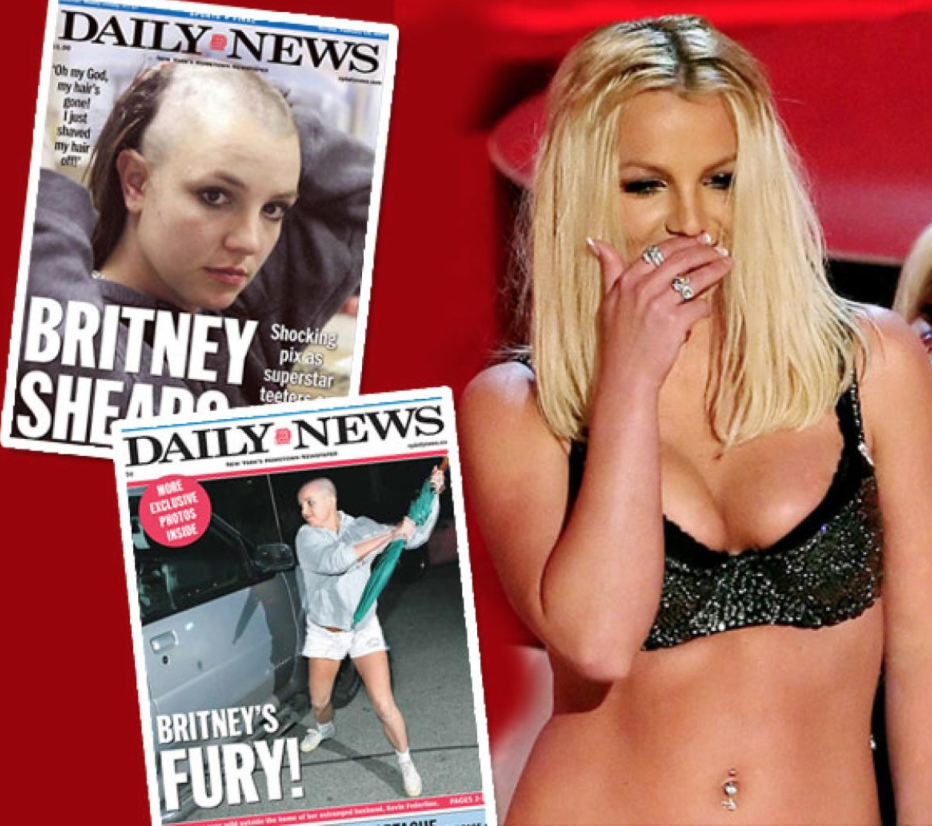In 2007, Britney Spears was having a bit of a downward spiral. And for the first time in pop culture history, the media was not there to put a positive spin on America’s former teen princess. Even after cheating on Justin Timberlake and dismantling the millennial generation’s already imperiled view of perfect romance, the tabloids didn’t give her half as much shit as they did the year Blackout was released. But that was 2002, practically the Dark Ages of tabloid fodder in terms of comparative technology and acceptable angles (figuratively and literally) with which to approach celebrities. Let us not forget that TMZ was founded in 2005, changing the game with regard to that former Hollywood concept of glamorizing reality. Spears was a prime target during this period for not only stalking via camera to see what kind of white trash behavior she would engage in next, but also for serving the purpose of tearing an idol off her pedestal in a manner that had never before been possible.
With October 25, 2017 marking Blackout‘s tenth anniversary (and, now, Fats Domino’s death), the album feels more than ever like a time stamp on an 00s phenomenon: the alienation of party girls in their twenties. From Lindsay Lohan and Paris Hilton (a duo that spawned a thousand memes while on a joy ride with Spears herself to an L.A. nightclub in November of 2006) to Ashlee Simpson and Christina Aguilera (yes, it is a bit insulting to the latter to lump her in with the former), there was a pervasive sensation at play. That of famous women with a reputation for partying a.k.a. being bad/causing scandals feeling inclined to defend themselves for it in their songs–apparently the only avenue through which anyone might listen to their plight (even if it forced you to sit through “Rumors” by Lindsay Lohan).
Blackout serves as the apex of addressing this new circumstance of internet video fodder in the vulturedom of media coverage. While the paparazzi had always been relentless in their pursuits (see: death of Princess Diana and/or photos of Madonna and Sean Penn in the 80s), this was the dawning of an entirely new era in terms of how the masses consumed their celeb gossip, ergo how the paparazzi presented it.
The most shining gold example of Blackout‘s relationship to this moment in time is “Piece of Me” (a song Spears is still fond of based on her decision to call her Las Vegas residency the same title). With lyrics that decry the media bloodlust for cutting apart every aspect of a celebrity while still somehow wanting more, Spears sings, “I’m Mrs. Lifestyles of the rich and famous (you want a piece of me)/I’m Mrs. Oh my God that Britney’s shameless! (you want a piece of me)/I’m Mrs. Extra! Extra! This just in (you want a piece of me)/I’m Mrs. she’s too big now she’s too thin (you want a piece of me).” And they got several pieces, all of which came shattering to the ground in the form of a hospital gurney when Spears was forcibly taken to Cedars Sinai for psychiatric evaluation in January 2008.
On “Radar,” Spears again acknowledges a pursuer/pursued relationship, speaking more from the vantage point of a paparazzo as she warns, “I got my eye on you/And I can’t let you get away/Hey baby, whether it’s now or later/I’ve got you/You can’t shake me/Cause I got you on my radar.”
While many of the track titles appear to make subtle digs at “the industry” of trolls helmed by such ilk as Perez Hilton, including “Gimme More,” “Break the Ice” and the bonus track “Get Back,” “Freakshow” is the strongest testament to how Brit Brit was feeling about life in 2007. At the center of the circus was she, and all she could do was embrace the madness by turning mad herself. Opening the song with, “10 pm to 4 and I came to hit the floor/Thought you knew before/But if you don’t, then now you know,” Spears certifies that her every move is being documented–and whether she’s acting innocent or not, the tabloids will write about it in a negative light regardless, so she might as well at least have the fun of being illicit.
While reviews of Blackout upon its release were mostly favorable (maybe among the first and only time Spears’ music was praised for innovation primarily as a result of using producer Danja to Americanize the European dance trend), it was eclipsed, with appropriate irony, by tabloid headlines spelling out imminent career suicide. And as Spears took the stage to perform “Gimme More” on September 9, 2007 at the VMAs in, somehow, Vegas, it was clear to everyone that she was tired of dancing for the sick pleasure and amusement of those relishing every opportunity to speak ill of her in tangible and digital format.



















